To be chalk and cheese
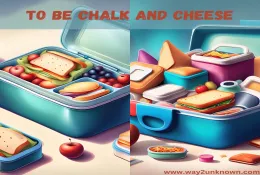 "To be chalk and cheese" is an idiomatic expression denoting stark differences between two entities, often emphasizing fundamental contrasts in characteristics or qualities. It draws from the disparate properties of chalk, typically white and used for writing, and cheese, known for its various textures and flavors. The phrase underscores not just differences but a profound divergence, making the comparison strikingly evident.
"To be chalk and cheese" is an idiomatic expression denoting stark differences between two entities, often emphasizing fundamental contrasts in characteristics or qualities. It draws from the disparate properties of chalk, typically white and used for writing, and cheese, known for its various textures and flavors. The phrase underscores not just differences but a profound divergence, making the comparison strikingly evident.

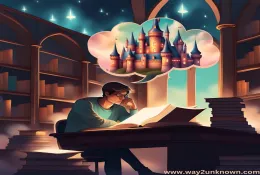 "Build castles in the air" means indulging in unrealistic or impractical dreams or plans that are unlikely to become reality. It warns against investing time and energy into pursuits lacking a solid foundation in reality. The phrase encourages focusing on achievable goals rather than wasting resources on fanciful aspirations.
"Build castles in the air" means indulging in unrealistic or impractical dreams or plans that are unlikely to become reality. It warns against investing time and energy into pursuits lacking a solid foundation in reality. The phrase encourages focusing on achievable goals rather than wasting resources on fanciful aspirations. "To bring the house down" is an expression denoting a performance or event that is exceptionally successful and well-received by an audience. Originating from theater, it symbolizes overwhelming applause and cheers elicited by an outstanding performance. It is commonly used across various forms of entertainment to signify the pinnacle of success and audience engagement.
"To bring the house down" is an expression denoting a performance or event that is exceptionally successful and well-received by an audience. Originating from theater, it symbolizes overwhelming applause and cheers elicited by an outstanding performance. It is commonly used across various forms of entertainment to signify the pinnacle of success and audience engagement.

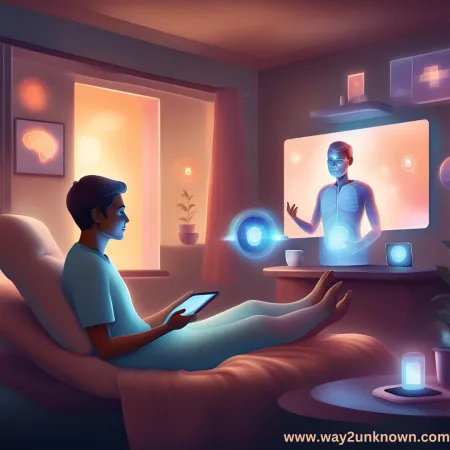
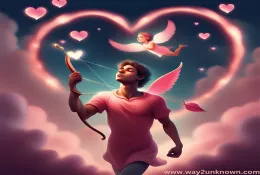 "To be lovestruck" describes the intense infatuation or fascination with someone, often characterized by overwhelming emotions and preoccupation with thoughts of the person. It implies being deeply affected or enchanted by feelings of romantic attraction, akin to being struck by Cupid's arrow. This state of being can lead to euphoria, obsession, and idealization of the object of affection, sometimes overshadowing rational judgment.
"To be lovestruck" describes the intense infatuation or fascination with someone, often characterized by overwhelming emotions and preoccupation with thoughts of the person. It implies being deeply affected or enchanted by feelings of romantic attraction, akin to being struck by Cupid's arrow. This state of being can lead to euphoria, obsession, and idealization of the object of affection, sometimes overshadowing rational judgment. "To be lovey-dovey" describes a couple displaying excessive affection and romantic gestures towards each other. It suggests a deep infatuation and fondness, often portrayed through cuddling, hand-holding, and sweet gestures. While it strengthens the bond between partners, it can also be perceived as overly sentimental or cloying by those around them.
"To be lovey-dovey" describes a couple displaying excessive affection and romantic gestures towards each other. It suggests a deep infatuation and fondness, often portrayed through cuddling, hand-holding, and sweet gestures. While it strengthens the bond between partners, it can also be perceived as overly sentimental or cloying by those around them. "To wear one's heart on one's sleeve" means openly displaying emotions and thoughts without hiding them. The phrase suggests transparency and vulnerability in expressing one's innermost feelings. While it can foster genuine connections, it also leaves individuals susceptible to emotional vulnerability and potential hurt.
"To wear one's heart on one's sleeve" means openly displaying emotions and thoughts without hiding them. The phrase suggests transparency and vulnerability in expressing one's innermost feelings. While it can foster genuine connections, it also leaves individuals susceptible to emotional vulnerability and potential hurt. "To be head over heels in love" describes an intense and all-encompassing romantic infatuation with someone. It signifies being deeply enamored and consumed by emotions to the point of feeling euphoric and consumed with thoughts of the beloved. This state of love can lead to heightened excitement and vulnerability, blurring the boundaries between fantasy and reality.
"To be head over heels in love" describes an intense and all-encompassing romantic infatuation with someone. It signifies being deeply enamored and consumed by emotions to the point of feeling euphoric and consumed with thoughts of the beloved. This state of love can lead to heightened excitement and vulnerability, blurring the boundaries between fantasy and reality.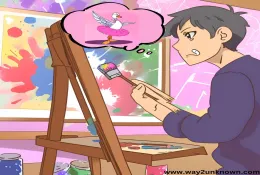 "To dance the duck's waltz" is an idiomatic expression denoting the futile or awkward attempt to perform a task beyond one's abilities. It humorously illustrates the mismatch between the intended action and its execution, likening it to a duck trying to dance a graceful waltz. The phrase emphasizes the inherent clumsiness or ineffectiveness of the endeavor, highlighting moments of ineptitude or absurdity.
"To dance the duck's waltz" is an idiomatic expression denoting the futile or awkward attempt to perform a task beyond one's abilities. It humorously illustrates the mismatch between the intended action and its execution, likening it to a duck trying to dance a graceful waltz. The phrase emphasizes the inherent clumsiness or ineffectiveness of the endeavor, highlighting moments of ineptitude or absurdity. "To have butter on one's head" is an idiomatic expression indicating someone's exceptional luck or good fortune. It suggests that the individual is remarkably fortunate, seemingly immune to the negative effects that would affect others in similar circumstances. The phrase humorously acknowledges someone's charmed existence, implying that they enjoy an unusually high degree of success or protection from adversity.
"To have butter on one's head" is an idiomatic expression indicating someone's exceptional luck or good fortune. It suggests that the individual is remarkably fortunate, seemingly immune to the negative effects that would affect others in similar circumstances. The phrase humorously acknowledges someone's charmed existence, implying that they enjoy an unusually high degree of success or protection from adversity. "To look for a black cat in a dark room" is an idiomatic expression representing the challenge of searching for something that is nearly impossible to find. It illustrates the futility of attempting to locate an object under extremely difficult circumstances, where visibility is severely limited. The phrase humorously emphasizes the absurdity of pursuing goals that are inherently impractical or unattainable.
"To look for a black cat in a dark room" is an idiomatic expression representing the challenge of searching for something that is nearly impossible to find. It illustrates the futility of attempting to locate an object under extremely difficult circumstances, where visibility is severely limited. The phrase humorously emphasizes the absurdity of pursuing goals that are inherently impractical or unattainable.